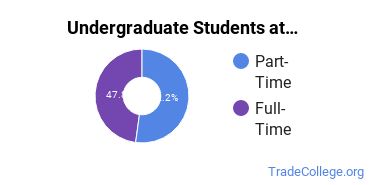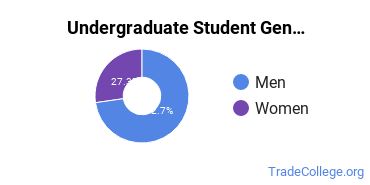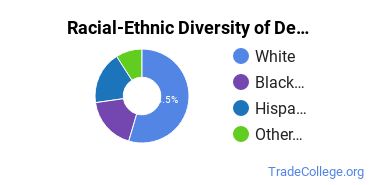Find Trade Colleges
DeVry University - Missouri Trade Programs
Located in Kansas City, Missouri, DeVry University - Missouri is a private for-profit institution. The location of the school is great for students who enjoy the amenities of city life.
Where Is DeVry University - Missouri?

Contact details for DeVry University - Missouri are given below.
| Contact Details | |
|---|---|
| Address: | 1310 E 104Th St, Ste 120, Kansas City, MO 64131 |
| Phone: | 816-943-7300 |
| Website: | www.devry.edu |
Can I Afford DeVry University - Missouri?
| In State | Out of State | |
|---|---|---|
| Tuition | $14,392 | $14,392 |
| Fees | $640 | $640 |
| Books and Supplies | $400 | $400 |
Explore Best Ranked Schools for You
DeVry University - Missouri Undergraduate Student Diversity

There are also 4 graduate students at the school.
Gender Diversity
Of the 11 full-time undergraduates at DeVry University - Missouri, 73% are male and 27% are female.

Racial-Ethnic Diversity
The racial-ethnic breakdown of DeVry University - Missouri students is as follows.

| Race/Ethnicity | Number of Grads |
|---|---|
| Asian | 0 |
| Black or African American | 2 |
| Hispanic or Latino | 2 |
| White | 6 |
| International Students | 0 |
| Other Races/Ethnicities | 1 |
Geographic Diversity
Missouri students aren't the only ones who study at DeVry University - Missouri. At this time, 2 states are represented by the student population at the school.
References
*The racial-ethnic minorities count is calculated by taking the total number of students and subtracting white students, international students, and students whose race/ethnicity was unknown. This number is then divided by the total number of students at the school to obtain the racial-ethnic minorities percentage.
More about our data sources and methodologies.
